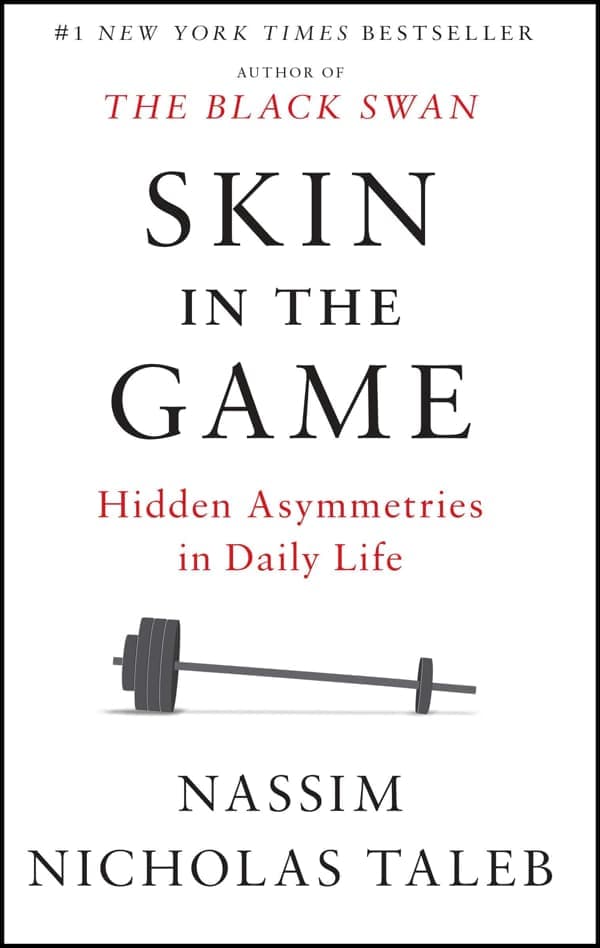Antifragile: Things That Gain from Disorder vs. Skin in the Game
Antifragile: Things That Gain from Disorder
www.amazon.com/Antif..."Antifragile: Things That Gain from Disorder" by Nassim Nicholas Taleb is a groundbreaking exploration of systems and entities that thrive and grow stronger in the face of stress, volatility, and chaos. Taleb introduces the concept of "antifragility," which goes beyond resilience or robustness. Through a mix of philosophy, practical wisdom, and real-world examples, Taleb illustrates how embracing uncertainty and leveraging disorder can lead to success and innovation. This book is essential for anyone interested in risk management, personal development, and understanding how to benefit from uncertainty and change.


Top Reviews
@misty-rose-bison-45
I remember reading Antifragile when it first came out and it made a huge impression. It changed the way I think in plenty of subtle ways. I've been rereading Nassim Nicholas Taleb recently, starting with Black Swan. I really want to reread Antifragile this year too.
Rankings
Pros
- Innovative and original concepts× 1
- Practical applications across various fields× 1
- Engaging and thought-provoking narrative× 1
Cons
- Taleb's writing style can be polarizing× 1
Pros
Cons
Frequently Asked Questions
Antifragile and Skin in the Game are both works by Nassim Nicholas Taleb that explore complex ideas around risk, decision-making, and life strategies. Antifragile, ranked 1st on the list, is often praised for its profound impact on readers, changing their perspectives in subtle ways. While Skin in the Game, ranked 2nd, also delves into important concepts like the importance of having a stake in the outcomes, it seems to have less overall impact according to user rankings. Ultimately, both books are highly regarded, but Antifragile appears to have a more significant influence on readers.
'Antifragile: Things That Gain from Disorder' by Nassim Nicholas Taleb is a groundbreaking exploration of systems and entities that thrive and grow stronger in the face of stress, volatility, and chaos. Taleb introduces the concept of 'antifragility,' which goes beyond resilience or robustness. Through a mix of philosophy, practical wisdom, and real-world examples, Taleb illustrates how embracing uncertainty and leveraging disorder can lead to success and innovation. This book is essential for anyone interested in risk management, personal development, and understanding how to benefit from uncertainty and change.
Pros of 'Antifragile: Things That Gain from Disorder' include its innovative and original concepts, practical applications across various fields, and an engaging and thought-provoking narrative. However, a con noted by some readers is that Taleb's writing style can be polarizing.
Nassim Nicholas Taleb is a renowned scholar, statistician, and former trader known for his work on probability, uncertainty, and risk management. He is the author of several influential books, including 'The Black Swan,' 'Fooled by Randomness,' and 'Antifragile.' Taleb's work often focuses on the limits of knowledge and the impact of rare, unpredictable events.
'Skin in the Game' by Nassim Nicholas Taleb explores the concept of risk and reward, emphasizing the importance of having personal stakes in the outcomes of one's decisions. The book delves into topics such as ethics, politics, and business, highlighting how real-world skin in the game can lead to better decision-making and accountability.
Nassim Nicholas Taleb is a renowned scholar, statistician, and former trader. He is best known for his work on risk and probability, particularly through his books 'The Black Swan,' 'Fooled by Randomness,' and 'Antifragile.' Taleb's writings often focus on the unpredictability of events and the importance of being prepared for the unexpected.
'Skin in the Game' discusses several key themes, including the ethics of risk-taking, the importance of accountability, the flaws in conventional wisdom, and the concept of asymmetry in decision-making. Taleb argues that those who take risks should also bear the consequences to ensure better and more ethical decisions.















